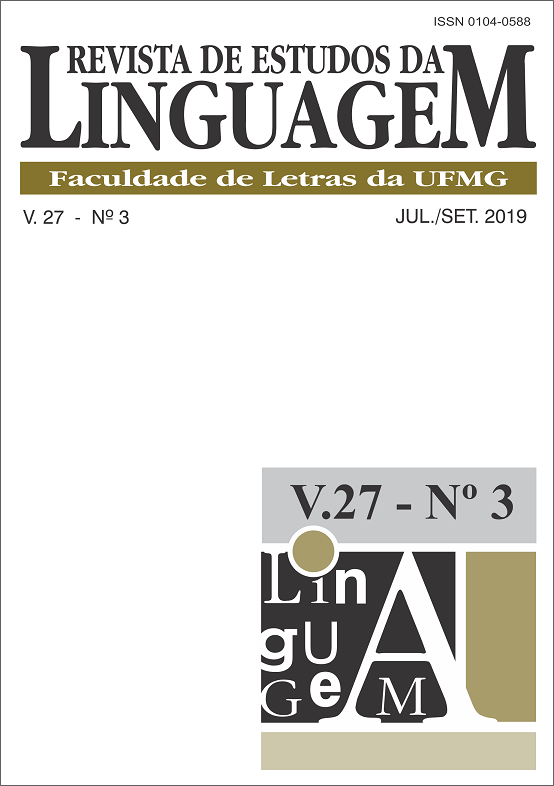Rastros do discurso: poder e interdição na decisão de um ministro do Supremo Tribunal Federal / Remarks of the speech: power and interdiction in the decision of a minister of the Supreme Federal Court
DOI:
https://doi.org/10.17851/2237-2083.27.3.1345-1369Palavras-chave:
discurso, decisão judicial, Lula, censura, discourse, judicial decision, censorship.Resumo
Resumo: Apesar de comumente se alardear que o discurso jurídico é regido por uma norma de neutralidade que impede a manifestação de posições ideológicas, nos flancos das decisões judiciais, onde há, por parte do Estado, maior cuidado para se garantir a justa distribuição da Justiça a todos os jurisdicionados, por vezes, cifras de um outro dizer se apresentam no enunciado produzido pelo magistrado. É como se, imperceptivelmente, o não dito fosse a verdadeira razão para se obrigar alguém a fazer ou deixar de fazer alguma coisa, embora o Direito adotado pelo Brasil, enquanto prática da juridicidade, seja o positivo. É o caso da Suspensão de Liminar 1.178/PR, peticionada pelo Partido Novo, no ano de 2018 (BRASIL, 2018), cujo relator foi o ministro Luiz Fux, do Supremo Tribunal Federal, liminar na qual se proibiu a entrevista do ex-presidente Lula ao Jornal Folha de São Paulo. Na decisão, o ministro Fux, argumentando defender o pleito eleitoral de 2018, ordena que Lula se abstenha de qualquer meio de comunicação que possa divulgar suas palavras, mostrando assim a face repressora do Estado. Por isso, nossa pesquisa, numa conexão entre a Análise do Discurso de linha francesa, alinhada aos pressupostos teóricos de Foucault (1996, 2002, 2014, 2015), pretende investigar, no corpus em cena, as marcas ideológicas que se evidenciam no discurso decisório do magistrado integrante da Suprema Corte do país.
Palavras-chave: discurso; decisão judicial; Lula; censura.
Abstract: Although it is commonly boasted that the legal discourse is governed by a norm of neutrality that prevents the manifestation of ideological positions, in the flanks of judicial decisions, where there is, on the part of the State, greater care to guarantee the fair distribution of Justice to all the jurisdictions, sometimes, ciphers of another say are presented in the statement produced by the magistrate. It is as if, imperceptibly, the unspoken is the real reason to force someone to do or not to do something, although the law adopted by Brazil, as a practice of juridicity, is the positive. This is the case of the Suspension of Limitation 1,178 / PR (BRAZIL, 2018), petitioned by the New Party, in the year 2018, whose reporter was Minister Luiz Fux of the Federal Supreme Court, in which the interview of former President Lula was banned from the newspaper Folha de São Paulo. In the decision, Minister Fux, arguing to defend the 2018 election, orders Lula to abstain from any means of communication that could divulge his words, thus showing the repressive face of the state. Therefore, our research, in a connection between the analysis of French Speech Discourse, in line with the theoretical assumptions of Foucault (1996, 2002, 2014, 2015), intends to investigate, in the corpus on the scene, the ideological marks that are evidenced in discourse of the country’s Supreme Court magistrate.
Keywords: discourse; judicial decision; Lula; censorship.





